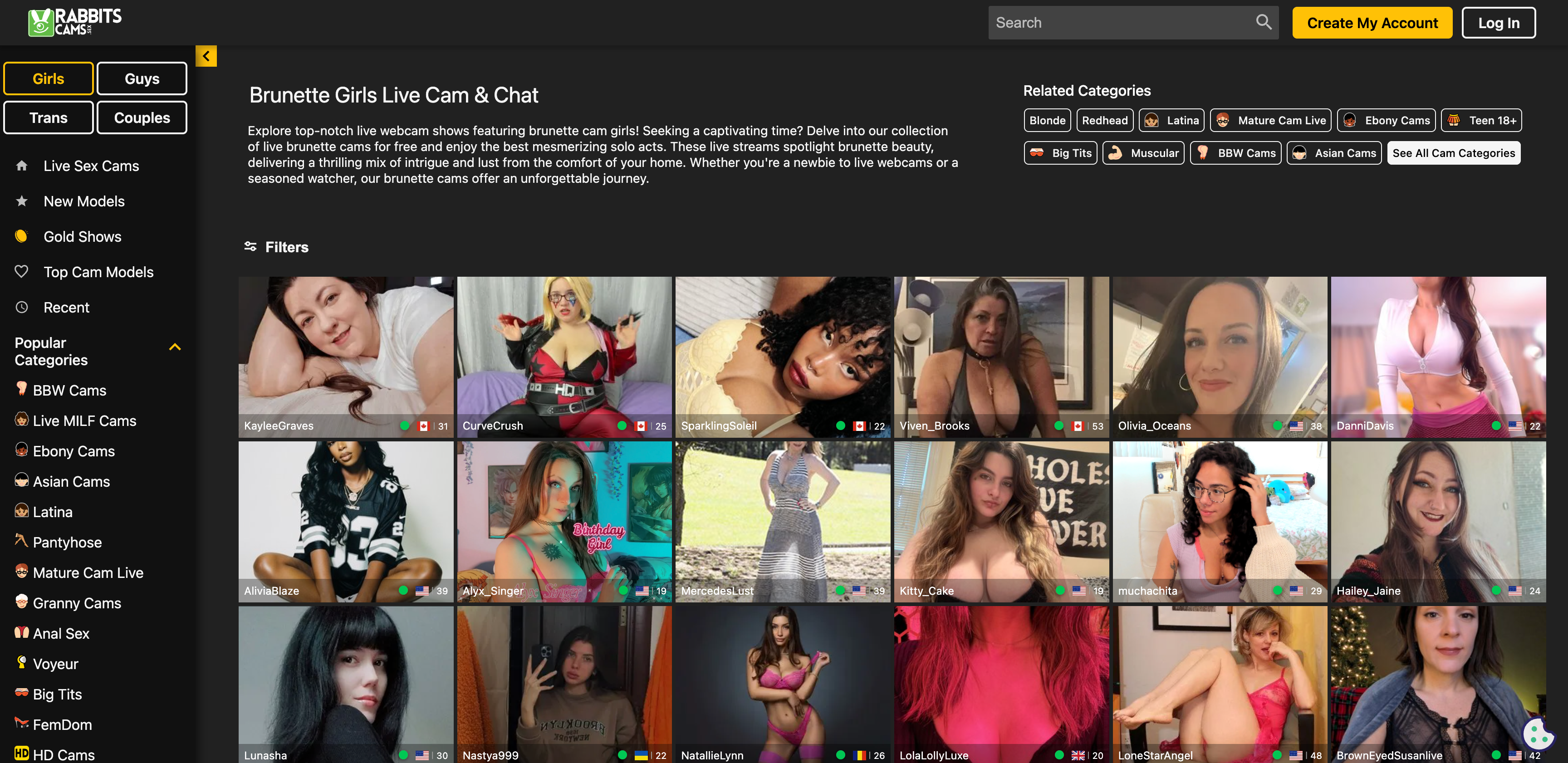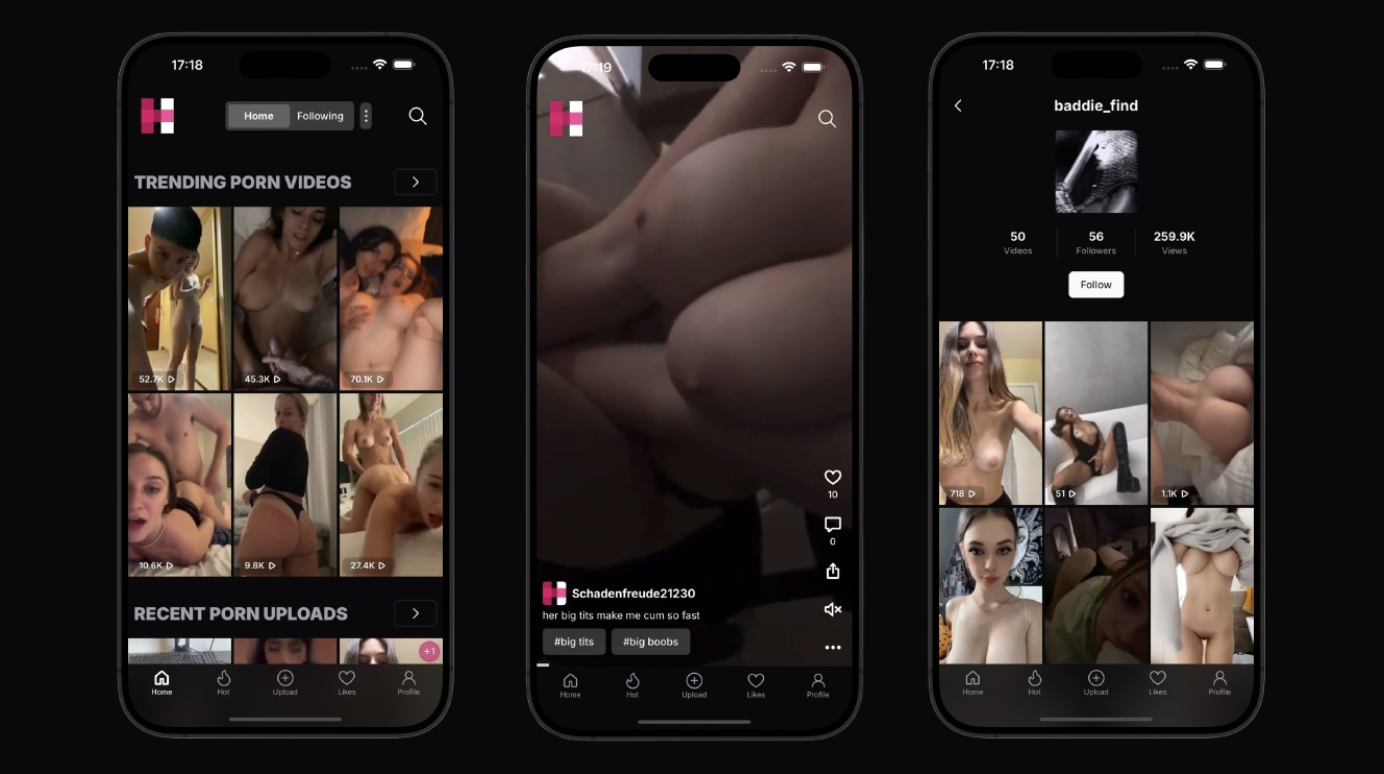How to Enjoy the Best Brunette Livecam Experience on RabbitsCams.sex

Your arrival to RabbitsCams.sex has brought you to livecam XXX! It is possible that you are curious about the factors that make a particular category, such as brunette cams, so appealing on this site.
Regardless of whether you are a seasoned livecam porn enjoyer or are just beginning to explore this fascinating medium of online sex... It’s going to be hot either way! Remember that finding a brunette live cam category that is genuinely remarkable is a challenge that many people face. However, RabbitsCams.sex is one of the best options out there… and we are going to tell you exactly why!
Understanding What Sets Brunette Livecams Apart
Brunette livecams at RabbitsCams.sex are perfect for a range of viewers. All kinds of viewers that have all kinds of preferences. Are you captivated by any random model with black hair and a seductive appearance? Well, you’re in luck! You want a femme fatale? They got you covered! On the other hand, maybe you like the approachable and genuine attitude that brunette cam girls often exude. Rabbit sCams.sex has it all going for it.
Remember that it’s common for brunette models to convey a natural attractiveness, whether they are engaging in casual conversation or showing off their big breasts. Your time spent browsing will be considerably more fulfilling if you are able to determine the kind of action or experience that most thrills you. That should happen after you arrive at RabbitsCams.sex. After all, you can enjoy cams for free and there are thousands of horny women to choose from.
What Do Others Enjoy the Most?
You may potentially find quick satisfaction by taking cues from other viewers about what they are looking for. In addition to paying attention to popular streams, you should also oversee live discussions in the camgirl rooms. They should tell you a lot about what kind of action is expected. What kind is worth your while, etc. In order to maintain RabbitsCams.sex in a way that is both modern and interesting, the top platform respects the feedback of its audience. That goes for almost every single top-tier camgirl as well!
How to Determine Which RabbitsCams.sex Fits You the Most?
When doing research, it is important to seek models that exude self-assurance, charm, and genuine interest. A fantastic brunette model is able to create an atmosphere that is sexy and inviting, giving you the impression that she cares about giving you a good time. RabbitsCams.sex is a great category to explore since there are different ways you can engage with women!
Overall, in RabbitsCams.sex, there is a wild mix of both seasoned seductresses and beginners. You know that we are about to praise this site’s variety, you just know that we are going to talk about…
The Crucial Role of Variety
Variety is one of the characteristics that distinguishes a good brunette livecam line-up from a great one. There are an infinite number of alternatives, ranging from themed solo rooms to just wild super-squirting shows that will keep you on the edge. With RabbitsCams.sex, you are going to get a huge, huge selection of women and all are hot.
Enjoying Unique Livecam Experiences
If you want to feel even more special, be on the lookout for livecams that deviate from the standard format. Just one example:
Themed Sessions. Events like “BDSM NIGHT” or “Anything Goes” can add variety and hotness;
Interactive Challenges. Truth or dare, cooking sessions, spin-the-wheel, or Q&A streams create hotter experiences.
One of the most memorable aspects of livecam encounters at RabbitsCams.sex often is the process of developing a relationship with a kinky model. It is important to not be afraid to communicate openly and take part in interactive activities. That way, you can quickly develop a rapport and become a girl’s most favorite customer. You would very much enjoy that, right?
Sneak Peek Opportunities on Social Media – Beyond RabbitsCams.sex
Now, we are not saying that it is 100% sure to improve your experience, but there is a common practice among women to promote their livecam areas by using Instagram, Twitter, or TikTok. By following these accounts, you will be able to become aware of what goes on in her life, get behind-the-scenes footage, and previews of upcoming sex shows.
Finally: Making the Most of the Experience
You can see schedules for upcoming broadcasts on RabbitsCams.sex. Make sure to mark your calendar for women who pique your interest, particularly those who don’t broadcast very often. Also, trying different shows and models can lead to unexpected favorites. There is a very strong possibility that you will be astonished by what makes you happy. Or horny. Do not hesitate to explore new subjects, kinks, fetishes, or engage with models that you have never seen before.
So, all in all, when you explore RabbitsCams.sex, you will embark on a thrilling adventure that is packed with options for connecting, amusing yourself, finding out more about the ladies, etc. In order to have a genuinely unforgettable livecam experience, you must first have an awareness of your tastes. Remember that as you see more here.






.png)


